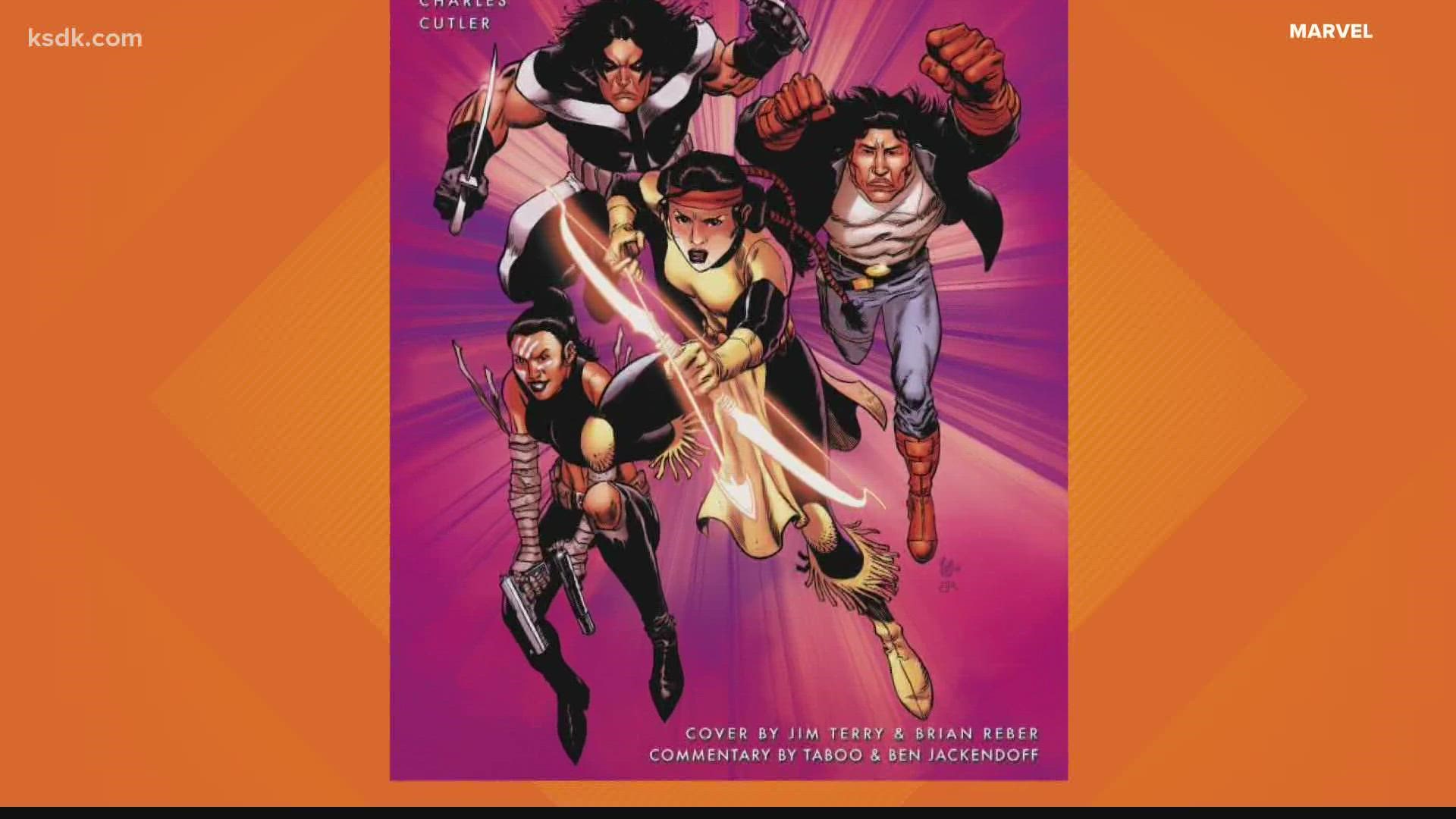ST. LOUIS — The second week of August included two holidays of sorts this year: World Indigenous Peoples Day on the 9th and Free Comic Book Day on the 14th.
They might seem unrelated, but at the intersection of the two, you’ll find Jimmy Gomez. He’s better known as Taboo, a rapper in The Black Eyed Peas. Now, he’s also added the title of graphic novel writer for Marvel.
5 On Your Side asked Taboo about his journey from musician to part of the Marvel Universe. He spent more than six minutes sharing about the little moments and people that helped him along his journey from a fan and toy collector at San Diego Comic Con to contributing on multiple projects alongside his co-writer, B. Earl. Those details were part of a larger point.
“It wasn't like a fast pass,” Taboo said of the years-long journey to this point. “I was persistent. I was humble. I was very astute, wanting to educate myself and learn how I can become better as a writer, as a co-writer and just really want to immerse myself in the culture that is Marvel.”
His specific role with Marvel is creating stories that feature Native American people. Taboo himself is Native American and Mexican, and he’s given that identity to his characters, including those in his series, 'Werewolf By Night'.
Taboo also created characters for 'Werewolf By Night' based on his daughter and grandmother.
“My grandmother was my matriarch, the woman that led my tribe and was the strong, solid rock that we needed for us to survive and to make it in this like,” Taboo said. “She is the reason why I’m here to be honest with you.”
He went on to say, “That's why I implemented JJ in 'Werewolf By Night' because I want her to feel empowered by these heroes, these strong characters that are not dependent on a man. They're not dependent or codependent on anyone else but themselves.” “With or without a man, she needs to just be as strong as possible. I want that independence, the love, that understanding and that nurturing because she is my everything. My daughter is my everything.
That series allowed Taboo to see one of his dreams come true in writing for an existing character, Red Wolf.
“I said I gotta do Red Wolf justice,” Taboo said. “I don't want him to be monolithic I don't want him to be a stereotype and what's been done in the past with Red Wolf. I modernized it and I made him kind of like Billy from Predator, where he looks modern and doesn't look like a stereotype.”
Taboo’s process included working with consultants to make sure details stayed as true to reality as possible, going so far as to give the main character in his latest project, Kushala, a specific clan of a tribe. That seemingly small piece of identity informs a broad spectrum of details, including clothing, housing, and vocabulary.
Now in 2021, Taboo took his passion for authentic representation and diversity back to the place where his journey began, in a way. He participated in San Diego Comic Con’s virtual convention, speaking with comic book historian Jessica Tseang in a panel called “Native American Representation in Pop Culture.” The panel streamed free on YouTube due to the pandemic.
Current events have brought attention to some ethnicities that is rooted in tragedy, but Taboo hopes to bring awareness of Native Americans through positive art. He said it would be hypocritical for him to be known for upbeat music, then turn around and create something that could be construed as negativity or frustrations. While he chooses “a more inclusive approach,” he supports others in however they choose to express their feelings.
“Although I'm empathetic about the traumas and the hardships that we've endured as First Nations people, in our ancestors and relatives, I want to make content that inspires everyone,” Taboo said.
Taboo has spent the last few years educating himself on issues facing Native Americans and taking a stand as an advocate. That includes going to Standing Rock Indian Reservation on the border of North and South Dakota to protest against the Dakota Access Pipeline in 2016.
He encourages others to get educated about issues affecting Native Americans and recommends the non-profit organization IllumiNative.
Taboo also hopes Hollywood will do the work to be more inclusive and diverse in telling Native American and Latino stories, stressing that representation matters. Taboo is campaigning to see a Native American superhero on the big screen with a story that will inspire the world, similar to the impact of Marvel’s 'Black Panther'.
“When I watch 'Black Panther', even though I’m not African American or African, I felt empowered," Taboo said. “If we are able to have more people in place at the round table that represent a mosaic of culture, then that’s when you start shifting the table. You start having a conversation of a more broader scale, and a more open-minded Hollywood.”
For more information about IlumiNative, click here.

